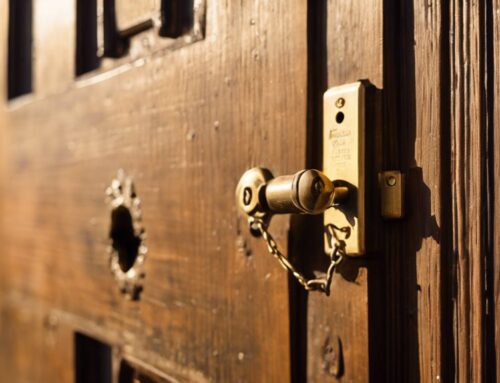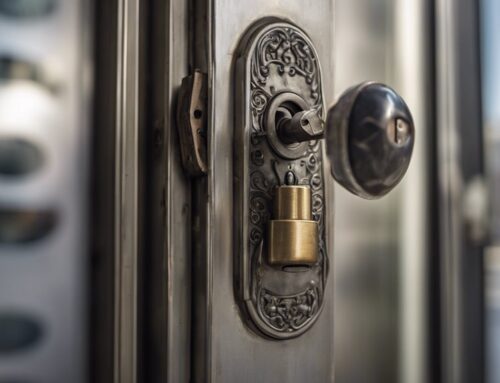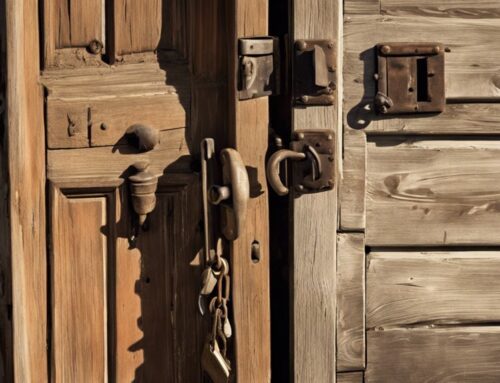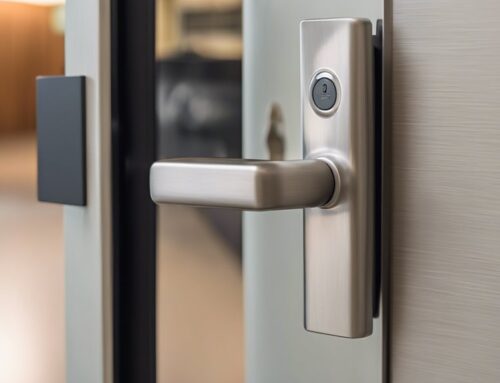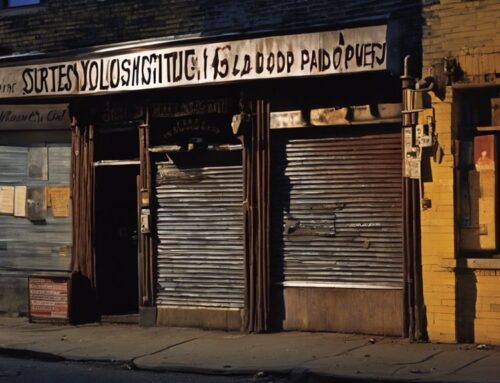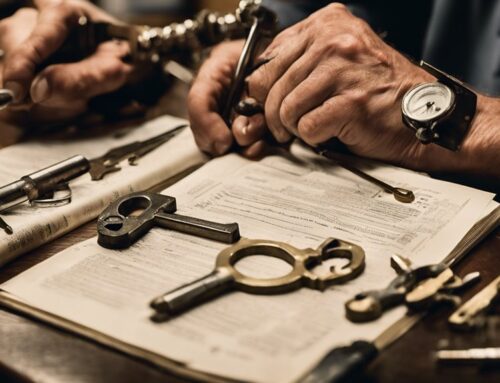Did you know that nearly 30% of key duplications are done without proper authorization in Pennsylvania? It's a startling figure that highlights the importance of understanding the nuances of key duplication laws. While the process may seem straightforward, the legal implications can be complex and potentially costly. You might be wondering what constitutes authorized duplication and the penalties for getting it wrong. Let's explore the various aspects of these laws and how they can impact you and your property.
Key Takeaways
- Key duplication is generally legal in Pennsylvania, but "Do not copy" markings do not legally restrict duplication.
- Patent protections may apply to certain key designs, necessitating authorization for duplication.
- Lease agreements and institutional policies may impose further restrictions on key duplication, leading to potential penalties.
- Licensed locksmiths must follow regulations to ensure compliance and security during the key duplication process.
- Unauthorized key duplication can result in legal consequences, including fines, lock replacement responsibilities, and reputational damage.
Overview of Key Duplication Laws
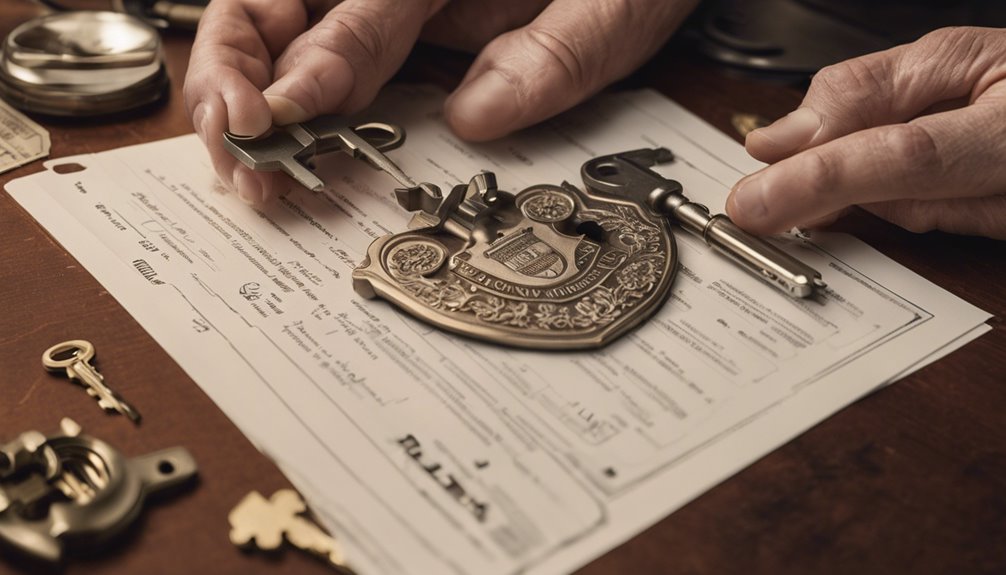
Key duplication laws in Pennsylvania have some nuances that are crucial to understand. Generally, duplicating a key isn't illegal in the state. Even if you see "Do not copy" stamped on a key, it doesn't automatically make it unlawful to duplicate. However, this marking could mean that the key design is patent-protected, potentially requiring authorization for duplication.
While there's no specific state law restricting key duplication, lease agreements or institutional policies might impose limitations. For instance, if you're a student at a university, you might encounter strict policies against unauthorized key duplication, facing penalties like financial charges or referrals to disciplinary offices for violations. This includes policies like the AD68 University Access Policy, which aims to protect the safety and property of the University.
Similarly, tenants should check their lease agreements, as they often include clauses that prohibit unauthorized duplication. It's important for locksmiths to be aware of licensing requirements in Pennsylvania, as they ensure legal compliance and professional recognition. Operating as an unlicensed locksmith in Pennsylvania can result in significant legal penalties, including fines and other repercussions.
Key duplicators and locksmiths are defined under Pennsylvania's regulations, but that doesn't mean they can't duplicate keys. Violations of duplication policies typically lead to contractual repercussions rather than criminal penalties.
Be mindful that unauthorized duplication can compromise security and may expose you or the property owner to liability. Institutions may secure compliance through regular audits or additional security measures.
Ultimately, while duplicating keys may not be illegal in itself, understanding the regulations, lease agreements, and potential institutional restrictions is essential. So always aim for compliance and seek proper authorization when necessary, ensuring both your freedom and security are upheld.
Authorized Key Duplication Practices
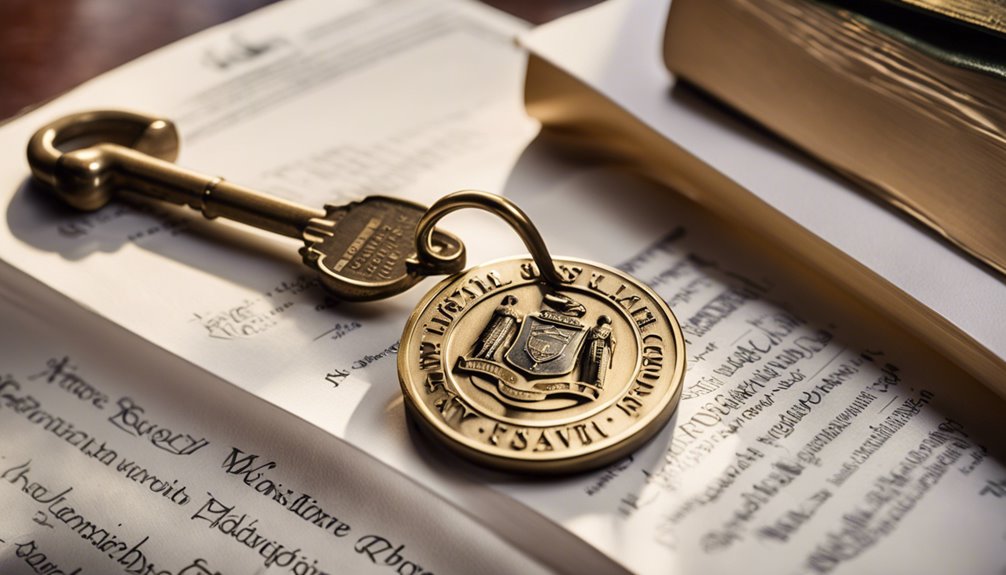
Understanding the regulations surrounding key duplication naturally leads to the importance of authorized practices in Pennsylvania. When you need a key copied, you want to be certain that the service is reliable and trustworthy. Here are some key points to regard regarding authorized key duplication practices:
- Licensing and Registration: Only licensed locksmiths are allowed to operate in Pennsylvania. They must meet specific criteria, undergo background checks, and follow strict guidelines to guarantee they don't duplicate keys without permission. Locksmiths must also be aware of their rights and responsibilities under Pennsylvania employment laws. Aspiring locksmiths should know that no specific locksmith license is required, but home improvement contractor registration can add credibility to their services.
- Professional Standards: Authorized services adhere to professional standards set by industry bodies, guaranteeing quality workmanship and proper pricing. They should inspect each key copy to confirm it fits correctly without damaging your lock. Additionally, many service providers leverage advanced key cutting technology to ensure precision in their work.
- On-Site Key Making: Many authorized locksmiths provide on-site key making services. This means they come directly to you, bringing the necessary equipment. They'll verify your identity to ascertain you're authorized to request the key.
- Types of Keys Handled: Authorized key duplication covers a wide array of keys, including high-security options, automotive keys, and even antique keys. Note that some high-tech keys may require specialized equipment not available in all services.
Restrictions on Key Duplication
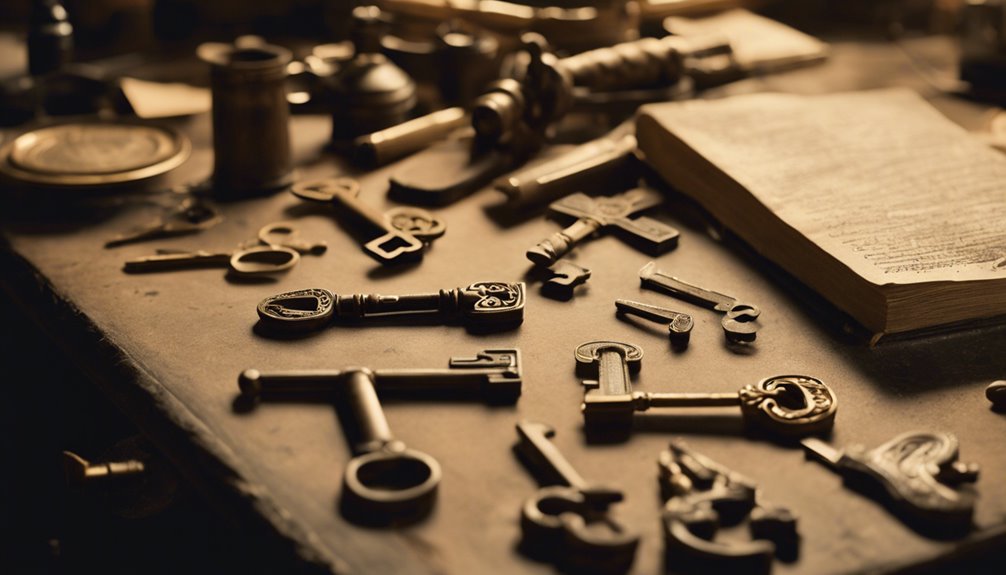
When it comes to key duplication, unauthorized actions can lead to significant risks, from financial penalties to disciplinary measures. Licensed locksmiths can offer exceptions, ensuring the duplication process complies with legal and institutional requirements. It's essential to understand these restrictions before attempting to duplicate any key, as duplicating apartment keys is generally legal but may conflict with property management rules. In Pennsylvania, possessing lock picking tools is legal, but using them with criminal intent can lead to legal issues. Understanding locksmith liability under Pennsylvania law can also help clarify the responsibilities and potential consequences for locksmiths in case of break-ins.
Unauthorized duplication of keys presents serious risks that can jeopardize your safety and property. When keys are copied without authorization, you're exposed to several threats, including burglary and unauthorized entry. Understanding these risks is crucial for protecting yourself and your assets.
Here are some key reasons to be wary of unauthorized key duplication:
- Legal Ramifications: It's illegal under laws like Penal Code § 469, which can lead to fines or imprisonment.
- Security Vulnerabilities: Duplicate keys can easily fall into the wrong hands, compromising your home or business security.
- Financial Consequences: You could face significant financial losses or damage to your reputation, especially in commercial settings.
- Asset Risk: Unauthorized duplication increases the chances of data breaches and theft, diminishing the integrity of your valuable assets.
- Regulatory Compliance: Locksmiths must stay informed about digital lock regulations to ensure they adhere to legal requirements in their practice, preventing potential legal issues. In Pennsylvania, essential safety standards must be followed to maintain the security and compliance of locks in various properties.
Licensed Locksmiths Exceptions
While unauthorized key duplication poses significant risks, licensed locksmiths operate within a distinct framework regarding key copying. In Pennsylvania, no state license is specifically required for locksmiths, but those performing over $5,000 in residential or commercial work must obtain a Home Improvement Contractors license. This license, managed by the Attorney General, guarantees locksmiths provide a physical mailing address and proof of proper insurance. High-security locks in Pennsylvania businesses must adhere to essential standards, ensuring compliance with state guidelines.
Interestingly, there's no training or certification mandated for locksmiths at the state level, nor are background checks explicitly required. As a result, registered locksmiths may not possess specialized skills or a proven history of reliability.
It's important to recognize that while state law doesn't restrict key duplication by licensed locksmiths, specific limitations can arise from lease agreements or property rules. Understanding Locksmiths in Pennsylvania Evictions is crucial, as locksmiths must ensure compliance and professionalism during these procedures.
Making unauthorized copies of restricted keys, like motor vehicle master keys, is governed by separate laws. Overall, licensed locksmiths can generally offer key duplication services, provided they adhere to any relevant property agreements or local regulations.
Always make sure you choose a locksmith who operates within these legal frameworks to guarantee your peace of mind.
Penalties for Violations
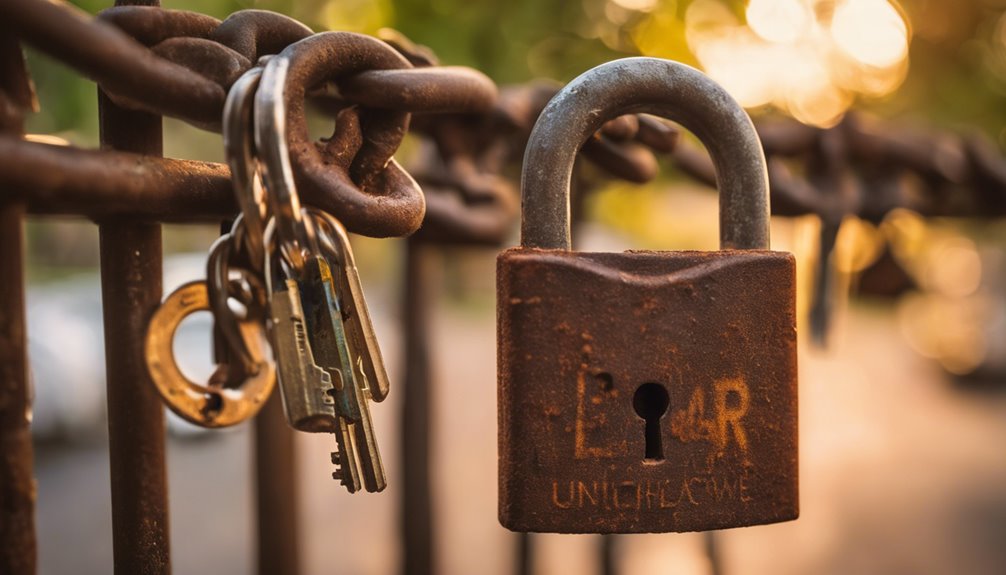
What happens if you duplicate keys without permission? In Pennsylvania, unauthorized key duplication can lead to serious consequences. If you're renting an apartment, you might face lease violations, which can result in hefty fines and other penalties, impacting your living situation and personal freedom.
Here's what you could face if you ignore this law:
- Lease Violations: Duplicating apartment keys without authorization is usually considered a breach of your lease agreement.
- Replacement Costs: You may be responsible for replacing locks and could incur additional fees for the inconvenience caused.
- Increased Monitoring: Property managers might monitor your activities more closely if they suspect unauthorized duplication, infringing on your privacy.
- Reputation Damage: If you don't turn over all key copies when moving out, you risk financial repercussions and potential damage to your relationship with the property manager.
For motor vehicle master keys, it's even more serious. Manufacturing or possessing these keys without proper authorization is a first-degree misdemeanor. Locksmiths in Pennsylvania offer emergency services that are reliable and competitively priced, ensuring immediate assistance when needed.
Penalties can include fines up to $10,000 and imprisonment for up to five years. In Pennsylvania, locksmiths play a critical role in foreclosure processes, ensuring that properties are secured legally and efficiently during such transitions.
Key Management Requirements

In Pennsylvania, understanding key management requirements is essential to guaranteeing compliance with institutional policies. Keys and access devices are the property of the institution, and you need to follow specific procedures when requesting them. Approval from designated authorities like Department Heads or Directors is required for key issuance, especially when electronic access isn't an option. Each key must bear a unique identifier to maintain accountability.
You'll use a Key Management System (KMS) to process requests and keep detailed records. This system links each key with its holder through a unique identifier, which helps in tracking who's access and when. To guarantee accuracy, Access Coordinators conduct annual self-audits, comparing physical key counts with records in the KMS. Random audits may also occur by University Access Control or Physical Security, keeping everyone on their toes. It is important for businesses to ensure ADA compliance for locks, meaning that mechanisms should be operable with one hand and not require tight grasping, pinching, or twisting of the wrist.
Remember, building access is primarily managed through electronic means, with keys reserved for essential cases. Highly restricted master keys require written approval for distribution. You, as an Access Coordinator, have a critical role in securing keys and access devices, guaranteeing unauthorized duplication or possession is avoided.
If you need core changes or key duplications, only a University-approved locksmith can perform these tasks in line with established procedures. Returned keys must be handled with care, and their storage is strictly regulated. Aspiring locksmiths in Pennsylvania can start their journey through locksmith apprenticeships, which provide essential training and certification.
Licensing and Compliance Standards
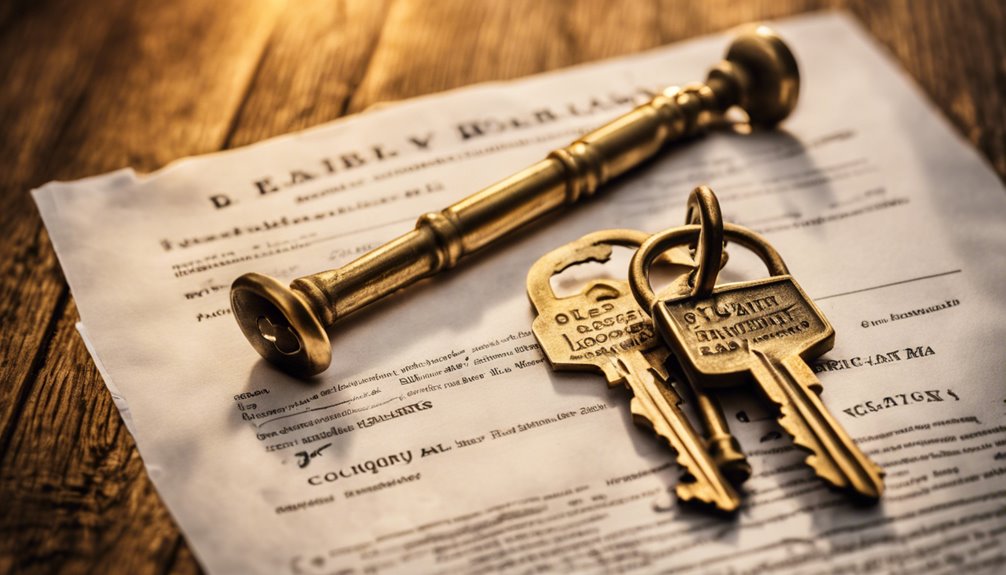
Understanding the licensing and compliance standards in Pennsylvania is essential for anyone looking to operate as a locksmith. While there's no state-specific locksmith license, certain requirements must be met to guarantee you can work legally and responsibly.
Here are key licensing and compliance standards you should know:
- Home Improvement Contractors License: If your locksmith work exceeds $5,000 annually, you'll need this license, managed by the Attorney General. The fee is $52 for two years.
- Age and Character: You must be at least 18 years old and demonstrate a solid moral character. No formal education is required, but training programs enhance your credibility.
- Identification Cards: If you have employees providing locksmith services, you must issue photo identification cards. These must include the employee's name, photograph, and your business's license number.
- Local Registrations: While there are no specific local licensing requirements, you may need to comply with local business registrations or regulations, depending on your operations.
Additionally, completing recognized training programs is highly recommended. It not only bolsters your skill set in areas like key identification and lock mechanisms but also sets you apart as a trustworthy professional. Certified technicians are available nationwide to ensure secure and reliable locksmith services at competitive rates.
Apprenticeships can provide valuable hands-on experience, while continuing education can sharpen your skills. By adhering to these standards, you'll be well on your way to operating a successful locksmith business in Pennsylvania.
Frequently Asked Questions
What Types of Keys Are Considered Master Keys in Pennsylvania?
Master keys typically include general master keys, sub master keys, grand master keys, and great grand master keys.
Each type offers varying levels of access to different areas within a property. If you're managing security, you'll want to choose a system that aligns with your specific access needs.
Always remember, these keys play a vital role in enhancing security, allowing for responsible control in multiple spaces while ensuring authorized access only.
How Can I Verify if a Locksmith Is Licensed?
Verifying a locksmith's license is like opening a door to peace of mind.
You can check the Pennsylvania Licensing System (PALS) for any needed licenses. If they'll be handling over $5,000 worth of work, verify they've a Home Improvement Contractor's license, which you can confirm through the Attorney General's Office.
Don't forget to inquire about local regulations, as they may have specific requirements you'll need to take into account.
Are There Exemptions for Residential Key Duplication?
There aren't any specific exemptions for residential key duplication.
You can duplicate your keys freely as long as it's for your own use.
Just remember, if you're duplicating keys for rental properties, you might've to take into account landlord-tenant agreements.
Always check with your homeowners association, too, as they may have their own rules.
Just make sure you're using a licensed locksmith to keep everything above board and secure.
What Should I Do if I Lost a University Key?
Did you know over 15% of college students lose their keys?
If you've lost a university key, report it immediately to the Access Coordinator using the Report a Lost Key form. If they're unavailable, contact University Police.
For residence hall keys, head to the housing Commons Desk or request a lock change via My.Scranton.
Can I Replace a Lost Key Without Authorization?
You can't replace a lost key without proper authorization.
If the key belongs to a property or vehicle you own, you've likely given consent implicitly. However, if someone else's key is involved, you need the owner's permission.
It's best to contact a professional locksmith who can guide you through the process.
Keep in mind that unauthorized duplication can lead to legal penalties, so always verify you've got the right permissions before proceeding.
Conclusion
Just like a gardener tends to their garden with care, understanding key duplication laws is essential for cultivating security in your home or business. By nurturing responsible practices and respecting restrictions, you can avoid the weeds of legal trouble. Remember to seek out licensed locksmiths, who are like skilled botanists ensuring your keys flourish without risk. Stay informed, stay compliant, and let your trust in the right hands release a safe environment for all.




